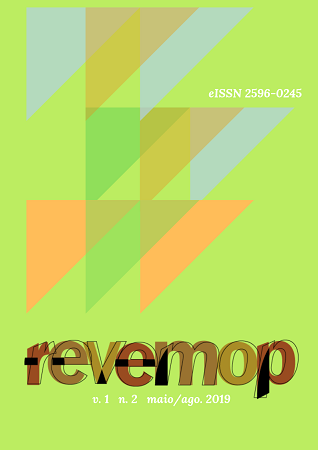The spaces of Financial Education in Mathematics teacher education in a federal institution of São Paulo
Abstract
The recent homologation of the National Curricular Common Base reinforces the need to think about the challenge of promoting Financial Education, from the initial series of school education to undergraduate level, especially in the Mathematics teacher training courses due to the link between Financial Education and Financial Mathematics. Moreover, the increase in the indebtedness indices of the Brazilian population, observed in recent years, also reinforces the need to rethink the promotion of Financial Education in school environments, as an integral part of the student's citizenship education. As researchers in Mathematics Education, our aim is to know the spaces of Financial Education in undergraduate courses for Mathematics teachers offered by a federal public institution of the State of São Paulo, as well as to look for possibilities and directions for its promotion in general school environments. This work is being carried out with teachers' trainers, that is, teachers who work in the Mathematics Degree courses offered by the institution, based on a qualitative research that favors the formation of a group, which met virtually and was engaged through a collaborative work. The dialogue with the contributions of Critical Mathematics Education has been eminent since the first discussions of the group, directing the theoretical discussions of the research until the present moment. We share in this article an analysis of the educational plans of disciplines related to the subject and of the initial reflections triggered in the proposed virtual environment, together with the teacher trainers. So far, we have pointed out a significant variation between the curricular proposals for the discipline of Financial Mathematics, in the different campi analyzed and, at the same time, an approximation between the yearnings and concerns in relation to the offering of something more oriented to the financial formation of the futures Mathematics teachers.
Downloads
References
ASSAF NETO, Alexandre. Matemática Financeira e suas aplicações. São Paulo: Atlas. 2009.
BAUMAN, Zygmunt. Vida para o consumo: a transformação das pessoas em mercadorias. Tradução de Carlos Alberto Medeiros. Rio de Janeiro: Jorge Zahar, 2008.
BRASIL, Banco Central do Brasil. Educação Financeira funciona? Série Cidadania Financeira – Estudos sobre Educação, Proteção e Inclusão. Brasília: Banco Central do Brasil, 2015.
BRITTO, Reginaldo Ramos de; KISTEMANN JR., Marco Aurélio; SILVA, Amarildo Melchíades da. Sobre discursos e estratégias em Educação Financeira. Jornal Internacional de Estudos em Educação Matemática, São Paulo, v. 7, n. 1, p. 177-208, 2014.
CAMPOS, André Bernardo; KISTEMANN JR, Marco Aurélio. Qual Educação Financeira queremos em nossa sala de aula? Educação Matemática em Revista, Brasília, n. 40, p. 48-56, nov. 2013.
CAMPOS, Celso Ribeiro, TEIXEIRA, James, COUTINHO, Cileda de Queiroz e Silva. Reflexões sobre a Educação Financeira e suas interfaces com a Educação Matemática e a Educação Crítica. Educação Matemática Pesquisa, São Paulo, v. 17, n.3, p. 556-577, 2015.
FIORENTINI, Dario. Pesquisar prática colaborativa ou pesquisar colaborativamente. In: BORBA, Marcelo de Carvalho; ARAÚJO, Jussara de Loiola. (Org.). Pesquisa qualitativa em Educação Matemática. 5. ed. Belo Horizonte: Autêntica, 2013, p. 53-85.
FULLAN, Michael; HARGREAVES, Andy. A escola como organização aprendente: buscando uma educação de qualidade. Tradução de Regina Garcez. 2. ed. Porto Alegre: Artmed, 2000.
GOUVÊA, Simone Aparecida Silva. Novos caminhos para o ensino e a aprendizagem de Matemática Financeira: construção e aplicação de webquest. 2006. 166f. Dissertação (Mestrado em Educação Matemática) – Instituto de Geociências e Ciências Exatas. Universidade Estadual Paulista. Rio Claro.
HARGREAVES, Andy. Os professores em tempos de mudança: o trabalho e a cultura dos professores na idade pós-moderna. Tradução de Jorge Ávila de Lima. Portugal: MacGraw-Hill, 1998.
HOFMANN, Ruth Margareth; MORO, Maria Lucia Faria. Educação Matemática e Educação Financeira: perspectivas para a ENEF. Zetetiké, Campinas, v. 20, n. 2, jul./dez. 2012.
KISTEMANN JR., Marco Aurélio. Sobre a produção de significados e a tomada de decisão de indivíduos-consumidores. 2011. 301f. Tese (Doutorado em Educação Matemática) – Instituto de Geociências e Ciências Exatas. Universidade Estadual Paulista. Rio Claro.
PELICIOLI, Alex Ferranti. A relevância da Educação Financeira na formação de jovens. 2011. 131f. Dissertação (Mestrado em Educação em Ciências e Matemática) – Escola de Ciências. Pontifícia Universidade Católica do Rio Grande do Sul. Porto Alegre.
QUEIROZ, Maria Rachel Pinheiro Pessoa Pinto de; BRABOSA, Jonei Cerqueira. Características da Matemática Financeira expressa em livros didáticos: conexões entre a sala de aula e outras práticas que compõem a Matemática Financeira disciplinar. Bolema, Rio Claro, v. 30, n. 56, p. 1280-1299, dez. 2016.
SKOVSMOSE, Ole. Desafios da reflexão em Educação Matemática Crítica. Tradução de Orlando de Andrade Figueiredo e Jonei Cerqueira Barbosa. Campinas: Papirus, 2008.
SKOVSMOSE, Ole. Educação Matemática Crítica: a questão da democracia. Campinas: Papirus, 2001.
SKOVSMOSE, Ole. Um convite à Educação Matemática Crítica. Tradução de Orlando de Andrade Figueiredo. Campinas: Papirus, 2014.






























